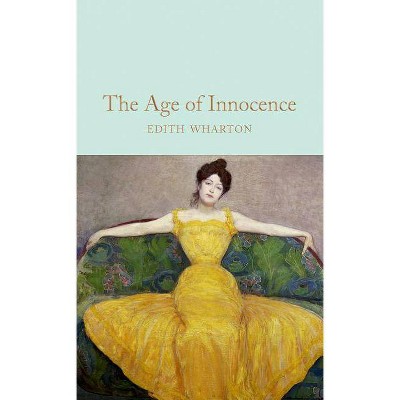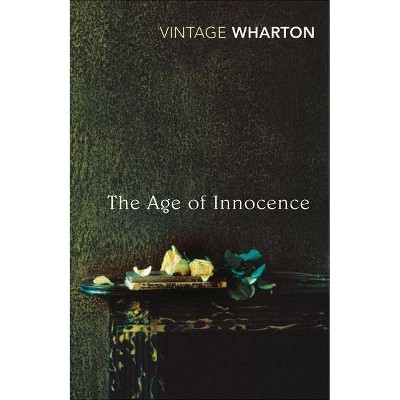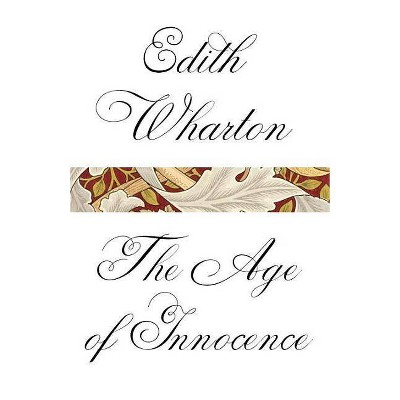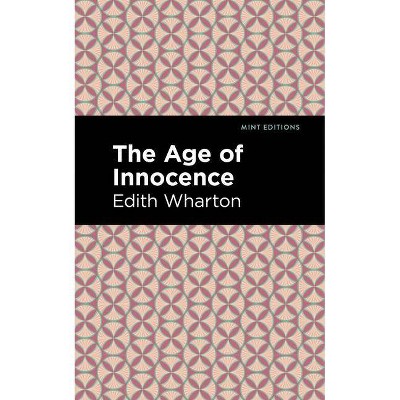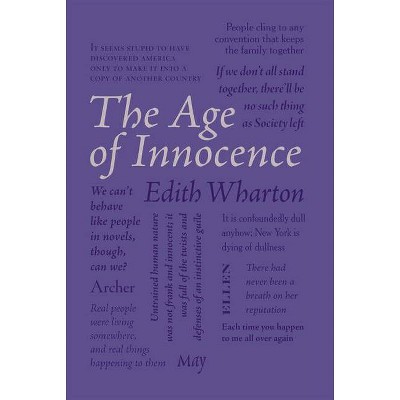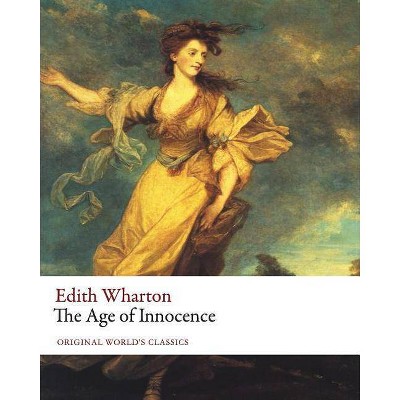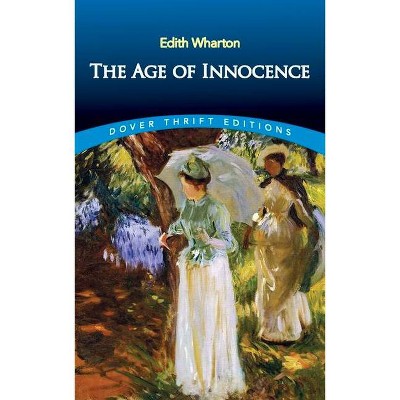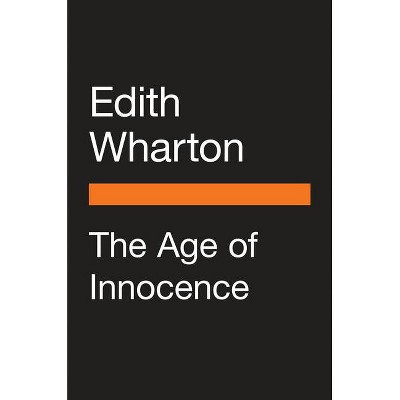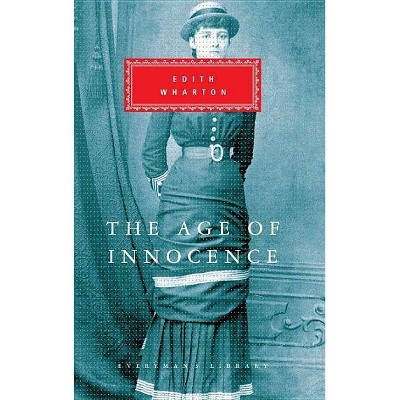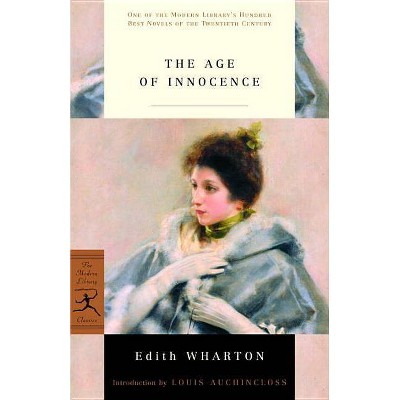The Age of Innocence - by Edith Wharton (Paperback)
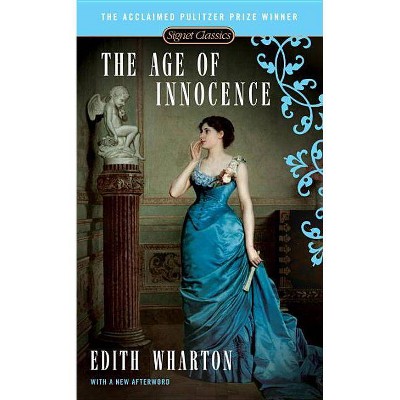
Similar Products
Products of same category from the store
AllProduct info
<p/><br></br><p><b> About the Book </b></p></br></br>The winner of the 1921 Pulitzer Prize, Wharton's acclaimed novel is the story of a passion threatened by convention and played out against a backdrop or New York City's upper class, unimaginable wealth, and unavoidable tragedy. Revised reissue.<p/><br></br><p><b> Book Synopsis </b></p></br></br><b>Winner of the first Pulitzer Prize ever awarded to a book written by a woman, <i>The Age of Innocence</i> is a suspenseful, deeply moving, and brilliantly accomplished novel of the struggle between desire and destiny.</b> <p/>In the polished works of Edith Wharton, Old New York is a society at once infinitely sophisticated and ruthlessly primitive, in which adherence to ritual and loyalty to clan surpass all other values--and transgression is always punished. <p/><i>The Age of Innocence</i> is Wharton's 1920 novel of love menaced by convention, played out against a gorgeously arrayed backdrop of opera houses, lavish dinner parties, country homes, and luxurious deathbeds. The young lawyer Newland Archer believes that he must make an impossible choice: domesticity with his docile and lovely fiancée, May Welland, or passion with her highly unsuitable but irresistible cousin, the Countess Ellen Olenska. What Newland does not suspect--but will learn--is that the women also hold cards in this game...<p/><br></br><p><b> Review Quotes </b></p></br></br><br><b>Praise for Edith Wharton and <i>The Age of Innocence</i></b> <p/>"Is it--in this world--vulgar to ask for more? To entreat a little wildness, a dark place or two in the soul?"--Katherine Mansfield <p/>"There is no woman in American literature as fascinating as the doomed Madame Olenska....Traditionally, Henry James has always been placed slightly higher up the slope of Parnassus than Edith Wharton. But now that the prejudice against the female writer is on the wane, they look to be exactly what they are: giants, equals, the tutelary and benign gods of our American literature."--Gore Vidal <p/>"Will writers ever recover that peculiar blend of security and alertness which characterizes Mrs. Wharton and her tradition?"--E. M. Forster<br><p/><br></br><p><b> About the Author </b></p></br></br>The upper stratum of New York society into which <b>Edith Wharton</b> was born in 1862 provided her with an abundance of material as a novelist but did not encourage her growth as an artist. Educated by tutors and governesses, she was raised for only one career: marriage. But her marriage, in 1885, to Edward Wharton was an emotional disappointment, if not a disaster. She suffered the first of a series of nervous breakdowns in 1894. In spite of the strain of her marriage, or perhaps because of it, she began to write fiction and published her first story in 1889. Her first published book was a guide to interior decorating, but this was followed by several novels and story collections. They were written while the Whartons lived in Newport and New York, traveled in Europe, and built their grand home, the Mount, in Lenox, Massachusetts. In Europe, she met Henry James, who became her good friend, traveling companion, and the sternest but most careful critic of her fiction. <i>The House of Mirth</i><b> </b>(1905) was both a resounding critical success and a bestseller, as was <i>Ethan Frome</i><b> </b>(1911). In 1913 the Whartons were divorced, and Edith took up permanent residence in France. Her subject, however, remained America, especially the moneyed New York of her youth. Her great satiric novel, <i>The Custom of the Country</i><b> </b>was published in 1913 and <i>The Age of Innocence</i> won her the Pulitzer Prize in 1921. In her later years, she enjoyed the admiration of a new generation of writers, including Sinclair Lewis and F. Scott Fitzgerald. In all, she wrote some 30 books, including an autobiography, <i>A Backward Glance</i> (1934). She died at her villa near Paris in 1937. <p/><b>Regina Barreca </b>is a professor of English and feminist theory at the University of Connecticut. She is the editor of seven books, including <i>The Penguin Book of Women's Humor</i>, and the author of four others. She writes frequently for the <i>New York Times</i>, <i>Chicago Tribune</i>, and <i>Hartford Courant</i>. <p/><b>Judith P. Saunders </b>is a writer known for <i>Reading Edith Wharton Through a Darwinian Lens: Evolutionary Biological Issues in Her Fiction, Lost Partners, The Age of Innocence</i>, and more. She is a professor of American Literature at Marist College in New York.
Price History
Price Archive shows prices from various stores, lets you see history and find the cheapest. There is no actual sale on the website. For all support, inquiry and suggestion messages communication@pricearchive.us
